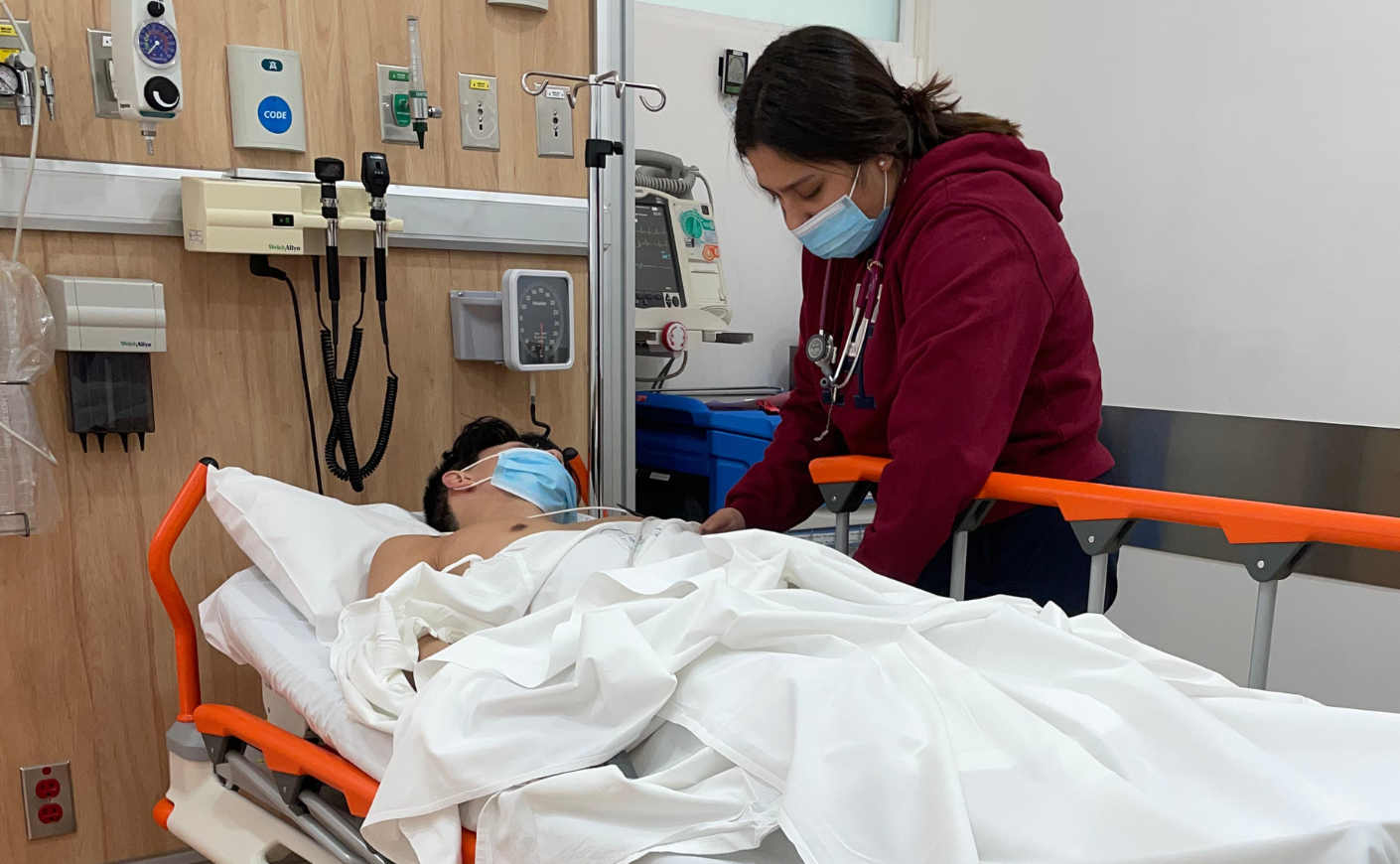It started on what should have been an incredible night. We were at a Michelin-rated restaurant in Mexico City, the kind of meal you remember forever.
The next morning, I woke up with food poisoning. The hotel doctor came to see me and prescribed the antibiotic ciprofloxacin. When you’re sick and weak in a foreign country, and a trusted hotel doctor hands you medicine, you don’t question it; you just take it.
After the first pill, I felt fine. But 48 hours later, after the second dose, everything unraveled. A massive rash broke out, starting on my back and spreading across my entire body. It looked like hives, only larger, angrier blotches. I began struggling to breathe. It felt like an anaphylactic reaction to the antibiotic. I fell on the floor and was rushed to the ER.
Within about a week, the nerve damage set in.
Pins and needles ran down my hands and legs. Walking became difficult. Lifting even the simplest things was a struggle. My body had betrayed me.
I went to the best doctors in New York City. Specialists. Neurologists. None of them could tell me why it was happening or how to make it stop. Every appointment ended with shrugs, tests, and more questions than answers.
So, like millions of people do when medicine runs out of answers, I opened my laptop.
At 2 a.m., I scrolled Reddit threads. I swiped TikTok and Instagram. I dug into endless comment sections. I was desperate to find even one clue, one story from someone who had walked this road before. But here’s the problem: When you’re sick, drained, and barely able to focus, you can’t hold on to what you read 10 minutes ago, let alone synthesize what you saw in 15 different posts. The internet becomes noise. Hope and misinformation are buried together.
But when you’re relentless, you start to see patterns.
I saw people mention alpha lipoic acid (ALA). Others swore by CoQ10. A handful spoke about red light therapy. Magnesium kept popping up. Individually, these were breadcrumbs. But when I put them together, they became a stack — but I was terrified to try it.
A question haunted me: What if this makes things worse?
I had read stories of people who had taken the same amount of ciprofloxacin and ended up in wheelchairs. Their lives were forever altered. Those voices echoed in my mind as I held the bottles in my hand.
I had no choice. Doing nothing felt like waiting for my body to shut down. Trying was terrifying. Not trying was worse.
So I started the regimen. ALA and CoQ10 in the morning. Magnesium in the evening. And every night I wrapped the red light belt around my arms and legs and sat with the glow in a dark room. I breathed. I waited. I cried. Some nights I felt more pins and needles. Some nights I felt the same. I kept going.
After a few weeks, the burning backed off. After a month, the pins and needles began to fade. Strength crept back into my hands and legs. It was not instant. It was not linear. But it was real. Months later, I regained my life.
That’s when it hit me. These weren’t random anecdotes. They were survival strategies that worked for real people. Yet they were scattered across the internet, buried in corners of Reddit threads, TikTok comments, and niche blogs. If I hadn’t spent hundreds of hours digging, they would have vanished. And if I hadn’t been able to connect the dots, I might never have healed.
That’s when I decided to build Qi Health.
What makes Qi Health magical is that it does the hardest part for you. Qi Health reads thousands of comments, watches thousands of videos, and synthesizes what actually worked for people with your condition. Then it organizes it into something clear, concise, and usable.
And it’s not just for nerve damage. Qi Health is designed for the day-to-day struggles across hundreds of conditions — sleep, anxiety, migraines, postpartum recovery, gut health, and so many more.
And it is built on one principle: You should never have to suffer alone.
Qi Health is the first social health network for “what worked.” Tens of thousands of real-world outcomes, across 600+ health concerns, synthesized instantly with visible sources. You can see what worked for people like you, and you can add your own story so the next person doesn’t have to start from scratch.
Here’s the truth: Qi Health only works if people give as much as they take. By sharing what worked and what didn’t, you become part of a collective that makes healing faster and easier for everyone.
I built Qi Health because I never want anyone to feel the way I felt: alone, helpless, scrolling at 2 a.m. in the dark.
You can download the app right here today. Once you click the download button, you’ll be added to the list. When the app officially goes live next Wednesday, Oct. 8, it will automatically appear on your phone. Android version is coming soon!
Health doesn’t belong to gatekeepers. It belongs to all of us. And if we can organize and share what works, we can uncover the possible.
No one should have to scroll in the dark again.
Edward Chiu is a second-time founder whose own recovery from antibiotic-induced nerve damage inspired him to create Qi Health. He is driven by a mission to build a better world through bottom-up healthcare, where collective stories uncover the possible for everyone.









